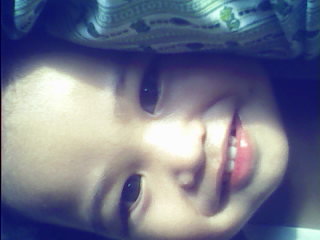Obstructive sleep apnea is common in children. Many affected children may show only mild symptoms but others may suffer from harsh consequences.
It is estimated that at least 1 to 10% of children suffer from sleep apnea. Snoring and breathing through the mouth during sleep instead of through the nose are among the most common signs of this sleep disorder in children. Some children may also show signs of gasping and restlessness. Sleep apnea may be classified into different types but the most common in children is called obstructive sleep apnea. Obstructive sleep apnea in children is characterized by a pause or momentary cessation of breathing. When not detected and treated early, this sleep disorder in children may cause harsh consequences that may affect children for long periods in their lifetime.
Learning Impairments
Severe obstructive sleep apnea in children has been found to have an effect on the learning ability of those who are affected with the disorder. According to studies, children sleep apnea induces the occurrence of chemical changes in the brain. These chemical changes interfere with the functions of the right frontal cortex and the hippocampus, two areas of the brain responsible for the learning and mental capacity of children. As a result, the IQ of the child with sleep apnea is decreased to a certain level. This means that a relatively smart child may suffer difficulty with his studies and garner low grades because of this sleep disorder.
Behavioral Problems
Obstructive sleep apnea has also been found to have an impact on the behavior of children affected with the disorder. Studies show that children sleep apnea not only causes poor academic performance; it leads to behavioral problems as well. Sleep apnea in children can lead to excessive sleepiness during the day. It may also lead children to feel restless and make them hyperactive. For this reason, children sleep apnea has been linked to ADHD in some children. In some severe and untreated cases, it has also been found that children sleep apnea may lead to mental retardation.
Cardiovascular Effects
Children with sleep apnea are found to have high chances of contracting abnormal heart function. This is because the cessation of breathing at long intervals may interfere with the brain’s normal function and prevent the flow of oxygen to the heart and other parts of the body. When this happens, the heart can be badly affected. Apart from abnormal heart function, children sleep apnea may also cause pulmonary hypertension and high blood pressure.
Diminished Growth and Worsening of Existing Medical Conditions
Severe obstructive sleep apnea in children has been found to have an effect on the normal growth of children. Some of the children diagnosed with this sleep disorder have been found to have suffered from growth retardation or diminished growth. Moreover, children who have existing medical conditions, such as asthma and epilepsy, may also suffer from worsening of these medical conditions.
Tips and Warning
The worst thing that can happen to children with obstructive sleep apnea is death. It is therefore imperative that parents be alert in detecting signs of sleep apnea in children. Sleep apnea is treatable. Adverse effects of obstructive sleep apnea in children can be prevented. Moreover, improvement in the children is more likely if the disorder is diagnosed and treated earlier.


